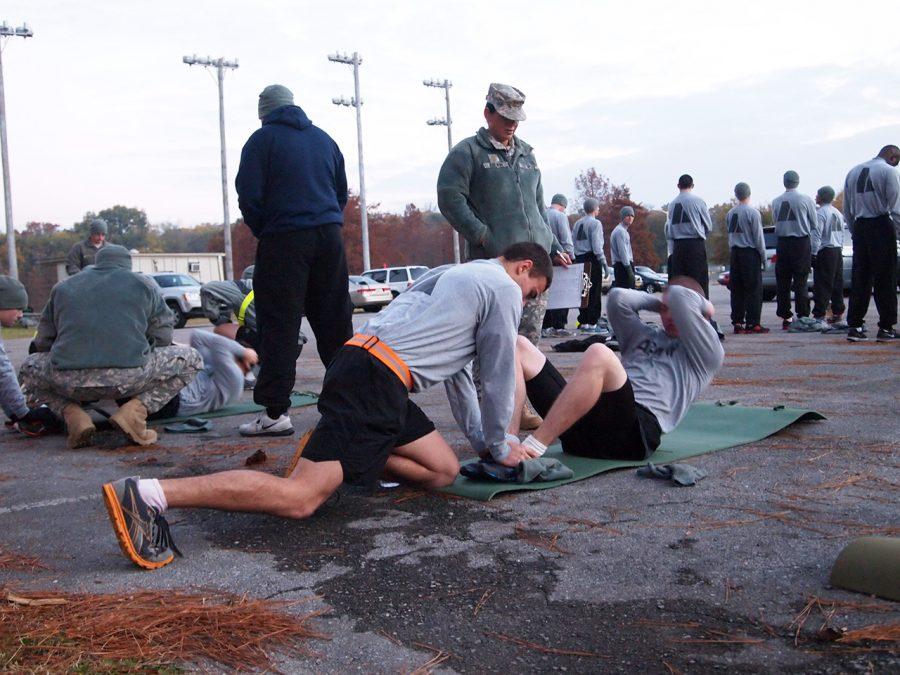ROTC students enlist, enroll in college
November 15, 2012
The morning hours come far too soon for many sleep-deprived, over-committed college students. Yet, while these students drowsily set out on the trip to early classes, some of their classmates in uniform have been awake for hours in physical training.
Early mornings are routine for UNA students in the Army Reserve Officers’ Training Corps (ROTC). Cadets train three times every week from 5:45 until 7 a.m., occasionally starting earlier than that. In addition, cadets still have the duties of a student.
ROTC is a leadership preparation course that provides college students with training needed to become an officer in the U.S. Army after graduation. While technically considered an “elective curriculum,” most cadets consider it a far greater commitment than extra classes added to their course schedule.
In fact, sleep is just one of many sacrifices ROTC cadets have to make.
“(Cadets) learn to exercise their leadership ability and accomplish tasks,” said Lt. Col. Michael Snyder, senior instructor of military science at UNA. “Probably the greatest challenge a cadet may have is balancing competing priorities more than the typical student. The responsibilities only increase the longer they are in the program.”
In other words, training does not stop at push-ups.
“In the army, officers are responsible for planning, preparing and using critical reasoning skills,” Snyder said. “Having a bachelor’s degree demonstrates a proven aptitude that you can do those things.”
Academic excellence is one of the most important duties of a cadet, he said.
Finding a job is as competitive within the military as it is outside the military, Snyder said. Upon graduation, each cadet goes through a rigorous evaluation process. Cadets are scored based on GPA first, followed by physical fitness.
While working for a college degree, cadets find ways to work their duty to the ROTC into routine college life. Some cadets find this difficult.
“Being in the ROTC means I have no social life,” said cadet David Graham. “My Friday nights and Saturday nights are gone. But I figure, if that’s the hardest part, it will be worth it in the end.”
Freshman cadet Graem Cook said his involvement in ROTC has been rewarding.
“I don’t see myself as different from other people on campus, other than the fact that my run time is significantly better and my sleep schedule is significantly worse,” Cook said. “The classes we take teach us how to become officers and lead people. It’s something to get used to.”
UNA senior and Battalion Commander Ethan Herring said he finds that serving in ROTC opens up endless opportunities.
“The final outcome of being commissioned as an army officer is going to be a great honor for me,” he said. “That’s a big motivation. I don’t know of any other program in the university that’ll pay you to go on an internship to foreign countries, full expense paid, and I had the opportunity to do that this past summer.”
Cook agrees that the ROTC is a challenge worth accepting.
“ROTC is very close-knit,” Cook said. “Everyone in the program looks out for each other because we’re all shooting for the same thing.”












